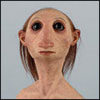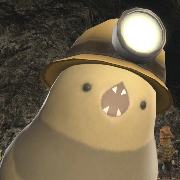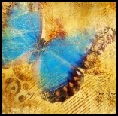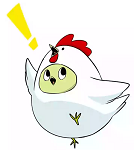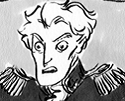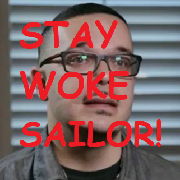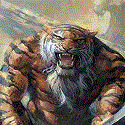|
Neurosis posted:To be fair, it's pretty explicit that seemingly magic technology like FTL is possible in the Vinge books... Just not in Earth's locality. I think Vinge's "zones of thought" concept works so well because the higher zones being so magical is in direct contrast to the slowness (I forgot the exact term) not allowing FTL travel, gravity manipulation, or post-singularity AI. It reaches a good mix of fantastic and real. My personal reason for greatly preferring sci-fi with no FTL travel isn't so much that I am a physics nerd and don't think it would be possible (this is one of Reynolds' main reasons), it's more about the sense of scale you can create by setting a maximum speed. The fact that the speed limit also happens to be the one that we think exists in the real world adds to the immersion. If the FTL travel is not written in as having huge restrictions and drawbacks, it does nothing for me other than shrinking an entire galaxy/universe into a small space. When I read sci-fi, if a planet is 20 light years from Earth, I want that to feel like a vast and insurmountable distance. Even if the author creates some kind of work-around and 20 light years is not that big of a deal, SOMETHING needs to be a big deal and a vast distance to create a sense of scale. In Embassytown Mieville has a type of hyperspace (I can't remember what he called it) where a planet that was 200 light years away in physical space would be right next door using hyperspace, but a planet even two light years from Earth might take forever to reach using Hyperspace. I liked this concept because it made it so ANY distance in physical space still felt vast. I think a lot of authors like adding in FTL because they are more intrigued by the concept of "space battles" and multiple worlds. If you have FTL ships, you can still have battles in space and you can write in a bunch of alien races and worlds that all feel close to each other. For some people that is cool on its own, but I really need to have everything feel far away.
|
|
|
|

|
| # ? May 10, 2024 00:45 |
|
2 Reynolds's books have ftl but were limited in use. Century Rain had it but it was only to specific worlds that were in a a network that was more or less closed off from the rest of the galaxy (If I remember right). It wasn't even really a space book so I barely count it. Below spoilered because it answers part of the plot of another of his books. House of Suns had FTL but to really use it the host galaxies had to be blacked out from the larger universe over a causality violation thing. But that was just FTL between galaxies. I don't think it was answered if it could be used within a single galaxy on a distance so relatively small. Plus this only appears at the end of the book. I'm interested to see where he takes it since he said he was planning on a sequel to HoS But I agree completely with what you said. Why read about space if it doesn't feel like space? Nondescript Van fucked around with this message at 14:26 on Jul 17, 2013 |
|
|
|
KomradeX posted:So this is from a bunch of pages back, but why the hate for Red Shirts? It was the first Scalzi book I read and loved it. I'm sure it isn't ground that hasn't been tread before but I enjoyed the light story of the main novel and loved the three epilogues and thought what he did with this was rather witty. I didn't think Red Shirts was bad per se, more like a fun idea which somewhat fell apart on execution but still well worth a read. There's some arguments to be made that it didn't deserve the awards it's gotten though, compared to its competition. I'm currently reading 2312, which so far I've loved and would rate much higher on a "Best of 2012" list.
|
|
|
|
mdemone posted:You know, it's somebody's actual job to put together these book covers. Sometimes I wonder just how much they're getting paid. Man, that cover is tragic. The paperback copy I have had a pretty good cover. I love James Morrow, he's like a preachy Douglas Adams. I'm still waiting for his books to go ebook, I've been meaning to read "Towing Jehova".
|
|
|
|
Redoing this post to make it more succinct. Basically I need a fantasy recommendation. Something that's a Trilogy or longer preferably. I've already read these series: Liked: Song of Ice and Fire, Joe Abercrombie, the popular Forgotten Realms series, Dragonlance, Wheel of Time, Tolkien Disliked: Mistborn(Didn't like how magic was explained and used), Malazan(too complicated basically), Prince of Nothing(same deal, seemed like there wasn't enough exposition to keep my interest by the first 80 pages or so, plus all the fantasy naming schemes made understanding things harder, Queen's Thief(Hate first person), Black Company(I want to say it was first person too, but seemed bad despite that) As you can see, I'm not above reading cheesy things with elves and dwarves,etc such as Forgotten Realms(which if there's a well regarded series that's anything other than Salvatore, let me know). I just want something to get invested in and have a few books to read. As long as something is interesting about it, whether it's the world, or just the story I can deal with it being kind of bad. Drunk Driver Dad fucked around with this message at 17:01 on Jul 17, 2013 |
|
|
|
Try Joe Abercrombie's First Law books. I find myself recommending them an awful lot, but they seem perfect for what you're after. Start with The Blade Itself, which is the first book of a trilogy (the others being Before They Are Hanged and Last Argument of Kings) and if you enjoy those then you've got three follow-up books to go through - Best Served Cold, The Heroes, and Red Country.
|
|
|
|
John Charity Spring posted:Try Joe Abercrombie's First Law books. I find myself recommending them an awful lot, but they seem perfect for what you're after. Start with The Blade Itself, which is the first book of a trilogy (the others being Before They Are Hanged and Last Argument of Kings) and if you enjoy those then you've got three follow-up books to go through - Best Served Cold, The Heroes, and Red Country. I actually just edited in that I had read those and enjoyed then. Maybe I should redo that whole post and just list likes/dislikes, it got out of hand.
|
|
|
|
Ha, fair enough. It seemed like a notable gap in the post and something you'd enjoy. I'm out of ideas now though.
|
|
|
|
Yeah, I hate that feeling when I'm in the mood for a particular genre and just draw blanks. Surely there's a shitload of fantasy novels out there that are just standard cliched elves and dwarves and mages type stuff. Most would probably be terrible but one would hope there'd be a few that aren't any worse than Salvatore's stuff. I'm getting desperate I guess, I've been reading Reynolds Revelation series, and I could really use a break from sci fi for a day or two. That's how I usually do, just have a sci-fi and fantasy series I read at the same general time, and just pick up whatever I'm in the mood for that night.
|
|
|
|
BlazinLow305 posted:I actually just edited in that I had read those and enjoyed then. Maybe I should redo that whole post and just list likes/dislikes, it got out of hand. My go-to recommended fantasy novel right now is The Lies of Locke Lamora, a fantasy heist novel with amazing dialogue set in a place like an old Italian city-state. It's got a sequel but it's pretty stand alone; you say you want a series but Lies is a pretty hefty book (700+ pages) and wraps up nicely. I'd check out the sample http://www.amazon.com/books/dp/055358894X, it hooked me faster than any novel in a long time. It's disappointing that you didn't keep with the Malazan series, how far did you get? Its density, high fantasy elements and the average first novel are all pretty high barries to new readers but it markedly improves in the second novel and the third one is fantastic. I'd think if someone liked Gardens of the Moon enough to go onto the markedly improved Deadhouse Gates you'd get hooked enough to read Memories of Ice and be stuck for 7 more novels.
|
|
|
|
Hey, I got eight books into Malazan and I a'g'ree w'th h'm. :P Narrowing it down to just long series without first person is surprisingly difficult. It depends on how EPIC you want things to be. Since you don't mind pulpiness, I'd recommend a few things: 1) The Deryni Chronicles books; the first three are good in a very sort of 1980's-fantasy-the-author-does-SCAD kinda way, and after that they went way downhill but you may not mind. 2) Maybe the Shannara books. They start out as obvious Tolkien ripoffs but get better book by book. The same author has another series that's worth reading, the first book is titled Magic Kingdom for Sale, SOLD! and that really tells you everything you need about the series right there. Again, not high literature, but not horrible. 3) Mary Stewart's King Arthur / Merlin books. 4) Terry Pratchett. He's got four or five running series set in the same universe and the characters overlap. Start with Guards, Guards (opinions may vary on best starting place). Again, more comic than high epic fantasy, but still quite good.
|
|
|
|
|
The Night Angel trilogy by Brent Weeks sounds like it is about your speed. It's about a lowly thief who wants to become a super powered assassin. Victorkm fucked around with this message at 17:19 on Jul 17, 2013 |
|
|
|
I got about ~100 pages in to Gardens. Yeah, I've been thinking about trying Gardens of The Moon again. From what I could understand things seemed interesting. I was just confused. It's been a while so my memory is already hazy, but I remember reading about Tattersail and those mage dudes trying to gently caress with that flying castle, and I remember the book going on about what seemed like politics between all those mages and not a bit of it stuck. It actually was bad enough to lower my self esteem a bit after because I felt stupid not being able to read a book. I vaguely remember the part about something with a woman in a high seat of power getting this soldier to investigate a mystery, I remember that part not being so confusing. It's just all the name dropping, and seeming lack of exposition overwhelmed what I was managing to enjoy. Also it doesn't exactly help I saw a picture illustrating the timeline of the books. Of course, after saying all that I don't doubt one bit the series isn't as great as people say so I'd really like to be able to get into it, not to mention it's many books long which is right up my alley. I sort of had the same thing happen with Revelation Space, the first time I tried to read it I got about 60 pages in and quit because I didn't have a good grasp on what was going on and technologies they were using, but when I went back to it it just clicked so easy and I can't see what was so hard about it to begin with. I suspect Malazan is still going to be a lot more complicated than Revelation Space though. I remember someone said once you could actually just jump into book 2 without missing much, and that it was way easier to follow? Even if it's true I'd still prefer to get through 1. I guess I may try to read it again if I don't find anything soon. edit: Just saw the other suggestions. As far as how "epic" I want to go, I'm not quite sure or just don't care. It seems like most of the cliched stuff with dragons and elves seems to all go straight for epic regardless, so I don't think it would really matter to me. Like I said, if the story or characters are just generally interesting for the most part, I'm happy. Basically the only things that bother me when reading is feeling bored by a book, or when I get hopelessly confused. I'll look up all those on good reads and check out the summaries. I'm sure one of them should suit me. Drunk Driver Dad fucked around with this message at 17:37 on Jul 17, 2013 |
|
|
|
Gardens of the Moon is kind of a mess, but I thought Deadhouse Gates was awesome. The Mappo/Icarium and Chain of whatevers storylines are awesome. In the spirit of Hieronymous Alloy's post, there is other 80s-90s pulp out there that I liked when I was in junior high/high school but that I haven't read since. I loved the Shannara books and Tad Williams' Memory/Sorrow/Thorn when I was a youngster, for instance. I'm not sure how terrible they would seem if I read them today. e: Dennis McKiernan's Iron Tower Trilogy is another LOTR rip-off. gvibes fucked around with this message at 17:38 on Jul 17, 2013 |
|
|
|
Victorkm posted:The Night Angel trilogy by Brent Weeks sounds like it is about your speed. That's interesting. It has a 4.44 rating on goodreads, although I know to take the ratings there with a grain of salt sometimes. I think I may give this series a go first.
|
|
|
|
BlazinLow305 posted:That's interesting. It has a 4.44 rating on goodreads, although I know to take the ratings there with a grain of salt sometimes. I think I may give this series a go first. It does a lot of things wrong and cribs a bit from wheel of time in places but you said you liked forgotten realms pulp so I thought you might like it.
|
|
|
|
mdemone posted:You know, it's somebody's actual job to put together these book covers. Sometimes I wonder just how much they're getting paid. But Towing Jehovah was a much, much better read imho. I also wasn't a huge fan of Only Begotten Daughter, but City of Truth was an amazing premise when I read it at the time. James Morrow rules. BlazinLow305 posted:Redoing this post to make it more succinct. Basically I need a fantasy recommendation. Something that's a Trilogy or longer preferably.  I'd recommend beginning with Legend and then reading the rest of that series in order. Night Angel series is pretty fun, it's a bit naively grimdark, but it has fun characters. It's not as good as The Lies of Locke Lamora was in terms of gritty fantasy street kid stuff, but it wasn't trying to do the same thing, and goes in a very different direction. The romantic stuff in the later books starts to get embarrassing though, close to Sword of Truth in that regard for star-crossed ludicrous premises. Also if you dig Forgotten Realms, you might enjoy Ravenloft. Also the Elminster series was fun. coyo7e fucked around with this message at 18:56 on Jul 17, 2013 |
|
|
|
BlazinLow305 posted:Redoing this post to make it more succinct. Basically I need a fantasy recommendation. Something that's a Trilogy or longer preferably. Wars of Light and Shadow by Janny Wurts might be worth a go. Two half-brother princes are cursed to eternal hatred, and everything goes horribly wrong. Very well-developed setting, huge cast of characters. Her writing style isn't for everyone, gets rather heavy on the purple prose, but if you can tolerate that it's worth a look. Nine books in the series with two more planned. Lynn Flewelling's Nightrunner series, more focused in on the characters than the grand scope of WoLaS, six in the series but the first three are the best by far. Two spies doing spy things with a nice helping of ancient evil to go with it, great characterization throughout. Since you don't mind mediocre writing, I'll go ahead and suggest Mercedes Lackey's Valdemar series for some pretty good characters and an interesting setting. They have their issues (many, many issues), but for light fantasy you don't have to think too hard on, they're pretty good - if you can ignore the author's preaching and fetishes popping up at least once per book. Any particular reason you hate first-person?
|
|
|
|
BlazinLow305 posted:I got about ~100 pages in to Gardens. Yeah, I've been thinking about trying Gardens of The Moon again. From what I could understand things seemed interesting. I was just confused. It's been a while so my memory is already hazy, but I remember reading about Tattersail and those mage dudes trying to gently caress with that flying castle
|
|
|
|
I'm another one of the people who got 8 books (or was it 9?) into Malazan before giving up. After a while it got too depressing/dark and all the Heroes/Villains felt too Dragonball Z'ish to me (each new novel had an existing character or new character become inexplicably more powerful than anyone we'd seen before. After a while it felt like the series was just a stage for these Super Saiyan battles). Don't mention that in the Malazan thread though. There's a few people there that seem to disagree with what I just said, and aggressively pick apart anyone who brings it up (despite new people saying the exact same thing every so often).
|
|
|
|
I dunno why people would pick it apart, since Erikson's word "convergence" is basically what DBZ is. It'd be awesome/funny to ask him if he picked up any of his storytelling cues from DBZ, because the comparisons are casual and broad, but there.
|
|
|
|
|
syphon posted:I'm another one of the people who got 8 books (or was it 9?) into Malazan before giving up. After a while it got too depressing/dark and all the Heroes/Villains felt too Dragonball Z'ish to me (each new novel had an existing character or new character become inexplicably more powerful than anyone we'd seen before. After a while it felt like the series was just a stage for these Super Saiyan battles). Don't mention it in here either, because that doesn't change it from an idiotic complaint from people who must have never read a single ounce of mythology in their lives. EDIT: Unless you really want to assert that Erikson's primary inspiration for the series was something that wasn't even available in English until about 5 years after he wrote the first book, and not his D&D campaigns and anthropology/archaeology studies. Oh Snapple! fucked around with this message at 20:30 on Jul 17, 2013 |
|
|
|
BlazinLow305 posted:Redoing this post to make it more succinct. Basically I need a fantasy recommendation. Something that's a Trilogy or longer preferably. I've already read these series: You probably have plenty of recs for now, but I like almost all the same stuff you do, and I HATED Night Angel. I also really hate Jim Butcher but his writing is like a good Dragonlance novel, so maybe take a look at Codex Alera. It's like popcorn fantasy. Now stuff I actually like: A series that doesn't get nearly enough love is Chathrand Voyages by Robert V.S. Redick. I picked up the first book, The Red Wolf Conspiracy, and was completely blown away. It's 5 books that are nice and big so you can really get into it. Raymond E. Feist doesn't get much love in this thread but I really like him. Magician: Apprentice is a really great introduction to his world, and the first 4 books had me totally hooked. It's then really easy to go on and read more stories set in the same world as he wrote arcs in trilogies, with a big overreaching arc over the entire 27 book series. The Great Book of Amber. It's awesome. All 10 books together make about one LOTR omnibus. It gets a lot of love around here for good reason. This is technically a young adult series but I recommend it to people all the time, the magic is really unique and cool: Sabriel by Garth Nix. It's also a trilogy.
|
|
|
|
poo poo, this turned into a bit of a long one. Ender's Game spoilers abound. TL:DR, pretty sure Card is anti-genocide. KomradeX posted:http://peachfront.diaryland.com/enderhitlte.html and http://www4.ncsu.edu/~tenshi/Killer_000.htm So I just skimmed the second article here, and I have to say I generally disagree with his thesis. I don't know what Card's intentions were (I know Card is an rear end and so maybe he was trying to excuse genocide after all), but here's my interpretation as colored by my own perceptions and morality. I've read Ender's Game at least half a dozen times. It was my favorite book when I was a teenager. The very first scene in the book has 6-year-old Ender brutally murdering another child as a response to that child's bullying. Ender never finds out that the child actually died, and certainly did not intend to kill, but that's somewhat irrelevant - he did intend to maim, to cause harm disproportionate to the bullying, preemptively punishing for the bullying that was yet to occur as a way of deterring it. I don't think it takes much of a moral compass to recognize that act as morally repugnant. Of course, it's hard to blame Ender too much; he's six years old, and we're all aware of the psychological cycle of the abused becoming the abuser. But still, a terrible thing to do - we all still condemn the abuser even while acknowledging the cycle of abuse. Later in the book, a similar situation arises, and Ender again brutally murders another child during a fight, this time in response not to bullying but to the perceived threat that the child and his friends would kill him if given the chance. There is even less to redeem Ender in this situation. But Ender is still a young child, and it's hard for him to understand other people, and make morally correct decisions, simply because he is inexperienced in the ways of human beings. Meanwhile, we learn the history of the Bugger Wars - how the Buggers came in, killed millions, were eventually barely driven back by the collective might of Earth; how their second invasion was fought off; and how the third war was a preemptive strike by humanity who aimed to wipe the buggers out entirely. And with the help of Ender, they do so. In the end, Ender finds out, and realizes immediately that humanity was wrong to commit genocide. It is my contention that the actions of humanity and Ender's cycle of abuse are metaphors for one another. They both committed morally repugnant actions in response to perceived threats from those that abused them. Because the abuse against Ender is left unchecked, Ender does not develop a working moral compass, and behaves evilly towards other children. And because of humanity's abuse at the hands of incomprehensible aliens they perceive as inhuman and murderous, humanity's moral compass is not properly aligned to deal with them, and humanity behaves evilly towards the Buggers. And once Ender learns more about people, and once humanity learns more about Buggers, their moral compasses are repaired. Unfortunately this moral repair happens in between Ender's Game and Speaker for the Dead so perhaps my interpretation requires reading the latter. In the end, and now I'm definitely getting into SftD territory, Ender is known as "Ender the Xenocide," humanity's greatest villain. And Ender doesn't disagree with that assessment - he devotes his life to repairing the damage he's done. So in the end I don't think that Card's intention was to be an apologist for genocide, but to use genocide as an extreme example of evil as part of a cautionary tale of what evils can occur when abuse is left unchecked, when otherwise good people act without understanding, when people consider self-preservation so intensely that they are blinded to the other consequences of their actions. Other Ender's game readers: am I completely off base here? Card's still an rear end in a top hat though 
|
|
|
|
DontMockMySmock posted:poo poo, this turned into a bit of a long one. Ender's Game spoilers abound. TL:DR, pretty sure Card is anti-genocide.
|
|
|
|
coyo7e posted:David Gemmell. He has single novels, trilogies, and longer series. Also the majority of his books take place in the same overall universe and it's fun to recognize elements from one series, in a seemingly entirely different one. He died though, so don't start with Ironhand's Daughter because that trilogy will never be finished. The Hawk Queen is complete in two books. Gemmell went back and covered much of the same ground in the Rigante novels, too. Gemmell's stuff is split into two big blocks - the Drenai Saga and the Sipstrassi Tales - plus three minor series (Hawk Queen, Rigante, Troy) and two standalone novels (Dark Moon and Echoes of the Great Song). There's four books that don't obviously fit into either of the big blocks, but the Parmenion novels feature Sipstrassi and the country where Knights of Dark Renown and Morningstar are set is off the northeastern coast of the mainland in the Drenai world.
|
|
|
|
coyo7e posted:Except for genocide against homosexuals, and anyone in the US Government who upholds laws that he disagrees with. Naturally. Maybe it's better to say that he was against genocide when he wrote Ender's Game and the Speaker for the Dead trilogy.
|
|
|
|
^^^^ NIMBY genocide? Jedit posted:The Hawk Queen is complete in two books. Gemmell went back and covered much of the same ground in the Rigante novels, too. DontMockMySmock posted:But Ender is still a young child, and it's hard for him to understand other people, and make morally correct decisions, simply because he is inexperienced in the ways of human beings. I always felt though, that he was never given a chance to learn to make moral decisions - he was too young in the first instance, and had already been taken somewhere which trained him to destroy threats with extreme prejudice by the second fight - that's the entire quality that they selected him for really, despite the lip service in the opening exposition dialogue between the controllers reading his brain chip, regarding how he's a little more like Val than Peter was, but Peter was what they'd really wanted/needed - however he was simply too unstable. Only Mazer Rackham displays any real amount of morality which he is able to impart to Ender, that I can recall anywhere in the book (except for the bit where he's burnt out and floating around on a raft with Val and she is worried about how he deals with the wasp). It's very much a tragedy about hubris turning to anagnorsis in that regard, for me. Humanity has the hubris to destroy the buggers by uising Ender as a tool, but they still can't deal with Ender having done it so they must exile him for their sins. Ender has the hubris to think of it all as a game, and then realizes the consequences of his actions after the fact (and Speaker for the Dead and Xenocide). I think Ender's Shadow is pure pulp, and threw Shadow Puppets away in disgust within the first like, 10-20 pages. coyo7e fucked around with this message at 22:38 on Jul 17, 2013 |
|
|
coyo7e posted:That is a rather indicative cover of what the book is, though. All it needs is to be clearer that the background is a gravestone (the protagonist is a stone carver who made gravestones). Read the title on that cover more closely.
|
|
|
|
|
coyo7e posted:The Rigante and Troy were also set in the sipstrassi universe I believe, along with the Jon Shannow ones which I assume you already had included. Echoes of the Great Song as well, iirc. The Shannow books are explicitly Sipstrassi Tales; Wolf in Shadow was actually the first in the series. Echoes of the Great Song includes something similar to Bloodstones, but it's not Sipstrassi. The Rigante books are set in an alternate Europe, whereas the Sipstrassi books are all set on Earth; it might be possible that there's a reference to the Stones that I've forgotten, but I'd need a reference. And Troy features no magic at all, other than Cassandra's prophecies.
|
|
|
|
^^^ I seem to recall in Troy that he met what's his face, king of Atlantis guy who's in all of the Sipstrassi.mdemone posted:Read the title on that cover more closely.
|
|
|
|
You're right that Ender's Game, especially read together with Speaker for the Dead, does not endorse genocide, but Kessel does a good job documenting how manipulative it is. In most kids books, it's enough to have the protagonist get accused of something they didn't do (i.e. kids thinking Harry Potter is the Heir of Slytherin). Ender's Game levels that up by accusing the protagonist of things he really does do, but orchestrating everything so it's not his fault. I don't really think this is as poisonous as Kessel makes it out to be, but it's certainly cynical. The whole "Ender the Xenocide" business in Speaker is less about condemning genocide and more about escalating that pattern (now a whole civilization hates him!). I think the worst charge you can level against the book is that it tosses around Important Things (child abuse, genocide) for what are essentially frivolous reasons (cementing reader/protagonist identification and sympathy). I know people think the book has Important Things to Say about those Important Things, but as Kessel says, no one actually commits genocide by accident, nor do we seem likely to start systematically abusing children to turn them into weapons. Another line of criticism is that the novel basically tells teens and preteens who empathize with Ender what they want to hear: namely, that they feel alienated because other children, adults, and the system as a whole are all intentionally attacking them, and that despite appearances they are smarter and in a moral sense better than those around them.
|
|
|
|
Lex Talionis posted:...nor do we seem likely to start systematically abusing children to turn them into weapons. You can enlist at 17, you know. That's certainly not 6, but I don't think it's really as safe as you're suggesting to skim over that one as obviously implausible. edit: And, poo poo, if the book is supposed to be about humanity as a whole and not just the US it's certainly a thing that is happening right now as we speak with actual 6 year olds. Probably not as well organized, but very much with that sort of goal.
|
|
|
|
Irony.or.Death posted:You can enlist at 17, you know. That's certainly not 6, but I don't think it's really as safe as you're suggesting to skim over that one as obviously implausible. Ender's Game is basically a fun book about genocide. Yes, there's suffering, but almost all of that...the suffering the reader feels, not just what they understand on an intellectual level...all happens to Ender. The deaths of aliens, not to mention the impact of the deaths of the kids he accidentally kills, are all kept carefully off screen. Card, or at least the Card of those days when he was at the height of his powers, could have raked us over the coals and shown us Bonzo's mother receiving the news, all his relatives crying at the funeral, etc. That would have really helped drive home the book's very muted argument against the children-as-weapons business. But he didn't, because then we'd be identifying with Bonzo and his family instead of Ender.
|
|
|
|
I prepared this list a year or two ago for another purpose but never got around to putting it up. So, I'll put it here and hope it's of interest. If you see your tastes match mine and you want more information about any of these books or authors...just ask.These were all 5 star books to me. The Hunger Games (trilogy) Suzanne Collins Seriously unrelenting YA dystopia. Altered Carbon Richard K. Morgan. Another favorite book of my life plus his The Steel Remains and The Cold Commands is great. Didn't like any of his others. The Skinner Neal Asher (I own everything he has ever written). Amazing space opera. The Skinner is a trilogy sub-set in his Polity Universe. The Hungry City Chronicles: Fever Crumb, A Web Of Air, Scriveners Moon, Mortal Engines, Predators Gold, Infernal Devices and A Darkling Plain Phillip Reeve Absolutely fascinating YA Dystopia Midnight at the Well Of Souls (and the 4 following that are even better) Jack Chalker. He wrote another quadrilogy, The Four Lords Of The Diamond that I really like also. The Blade Itself (trilogy) Joe Abercrombie Violent, intelligent fantasy. No loving elves! Perdido Street Station (and the vaguely related The Scar) China Mieville Everything else he wrote did not work for me but this is some incredible fantasy that is brilliantly realized. The Lies Of Locke Lamora Scott Lynch. Would have been a series but the author cracked up. Crime Fantasy? Uglies (trilogy) Scott Westerfeld. Converted me to YA dystopias. The Maze Runner - James Dashner - trilogy. Very good but then came a prequel that sucked. Replay Ken Grimwood. One of the very few good time travel books. Everlost (trilogy) - Intriguing YA sort of ghost story. The Forest Of Hands And Teeth (trilogy) I usually disdain Zombies but this is very, very good. Unwind Schusterman. Dystopian YA about an alternative to abortion. Hated the sequel (Unwholly) though. The Unincorporated Man. - Dani Kollin - a quadrology. Libertarians will like this one and its great space opera with an interesting economic system. Jennifer Government - Max Barry. Corporations take over the world. Government bills you to solve crimes. Bone Dance - Emma Bull. Urban dark fantasy? Gideon's Fall - Eric Gabrielsen. Augments and cyborgs mix it up. Final Days - Gary Gibson. A "Neal Asher" type author. I've enjoyed his 2 trilogies very much. Best of all, the world really does end. The Menstruating Mall - Carlton Mellick. A really bad day at the mall. None But Lucifer Horace Gold Written in 1929, it explains the world we live in better than any other book I ever read. Faustianism at the next level. Callahans Lady - Spider Robinson just because its my favorite of the Callahan series. Even if you dont like Spider, this book will make you laugh and cry. Tetherballs Of Bougainvillea Mark Leyner so funny you may well wet yourself when reading. Defies description. Early Bizarro, maybe.? The Truth Machine - James Halperin Im not sure why this book is here. I just got caught up in the possibilities in a world with a working accuratre lie detector. That's the truth. The Collector Collector Tibor Fischer for the sake of your vocabulary, if nothing else. I laughed myself sick. Just Like Beauty Lisa Lerner uh, I dont know why this book is here. Did I really like it that much or was it the [spolier]rabbit[/spoiler]? Software quadrilogy Rudy Rucker funny, really funny. Random Acts Of Senseless Violence - Jack Womack - depressing and frighteningly accurate prediction. Emerald Eyes - DK Moran. Best cyberpunk ever. 4 books in series called The Continuing Time. I'm currently reading The Breach (trilogy) and Hamilton's Commonwealth Saga. So far, I'm pretty pleased.
|
|
|
|
Vinterstum posted:I didn't think Red Shirts was bad per se, more like a fun idea which somewhat fell apart on execution but still well worth a read. There's some arguments to be made that it didn't deserve the awards it's gotten though, compared to its competition. I'm currently reading 2312, which so far I've loved and would rate much higher on a "Best of 2012" list. That was my feeling about Red Shirts as well. It starts off as a fun mockery of Star Trek, loses it's steam, and becomes something else that tries to be a lot more serious and meaningful but really isn't. What I expected, and what I imagine everyone else who purchased this book wanted was a book that made fun of the conventions of TV sci-fi as seen from the perspective of a non-major character inside that world, and that was like 1/3 of the book. And the remainder of the book was... something else entirely and not nearly as much fun.
|
|
|
coyo7e posted:Oh... Oh! I know, right? If you're publishing a book, it might be near the top of your list to actually put all the words in the title on the cover. But maybe I ask too much.
|
|
|
|
|
Anyone know if these books are as much pulp fun as the titles/covers indicate? The title of the third book in particular is fantastic. 
|
|
|
|
BlazinLow305 posted:As you can see, I'm not above reading cheesy things with elves and dwarves,etc such as Forgotten Realms(which if there's a well regarded series that's anything other than Salvatore, let me know). I just want something to get invested in and have a few books to read. As long as something is interesting about it, whether it's the world, or just the story I can deal with it being kind of bad. AreYouStillThere posted:Raymond E. Feist doesn't get much love in this thread but I really like him. Magician: Apprentice is a really great introduction to his world, and the first 4 books had me totally hooked. It's then really easy to go on and read more stories set in the same world as he wrote arcs in trilogies, with a big overreaching arc over the entire 27 book series. If you like the Forgotten Realms stuff, you might like Feist quite a bit, as he basically crafted the universe with a bunch of his D&D buddies and then wrote a bunch of books about it. As I noted in an earlier post, it's not perfect, but nice fun elves and wizards stuff with some unique twists. My favourite books were the first 4 (Riftwar saga, starting with Magician: Apprentice), as well as Janny Wurts' Empire series (Daughter of Empire, etc.), and the 3-book set starting with Talon of the Silver Hawk. The latter was interesting as it was stylistically quite different from his previous books. Also contains some good food-porn and a fantasy-world version of Lloyds of London.
|
|
|
|

|
| # ? May 10, 2024 00:45 |
|
Lex Talionis posted:Ender's Game is basically a fun book about genocide. Yes, there's suffering, but almost all of that...the suffering the reader feels, not just what they understand on an intellectual level...all happens to Ender. The deaths of aliens, not to mention the impact of the deaths of the kids he accidentally kills, are all kept carefully off screen. Card, or at least the Card of those days when he was at the height of his powers, could have raked us over the coals and shown us Bonzo's mother receiving the news, all his relatives crying at the funeral, etc. That would have really helped drive home the book's very muted argument against the children-as-weapons business. But he didn't, because then we'd be identifying with Bonzo and his family instead of Ender. This is a good point. But I think maybe that the intention is for you to identify with and sympathize with Ender, just so that when he finally repents at the end (after finding the Bugger queen), you can think back and say to yourself, "how the hell did I ever identify with such a horrible little kid?" As if to say, "look how easy it was for you to accept murder; to blame it on his environment and explain it away as not his fault because he's the perfect little innocent dude. Innocent dudes don't kick defenseless kids until they die. What the gently caress is wrong with you?" Maybe that wasn't what was intended, but that's what I got out of it. And that would definitely lose its impact if the majority of the book hadn't spent its time carefully insulating you from considering those sorts of consequences of Ender's actions, just as Ender was insulated from them. I think it would have been more impactful if he had committed the genocide knowing full well what he was doing, rather than being tricked into it - I don't think it would be out of character, either. And then you'd be forced to either admit that his committing genocide was justified given his environment or violently snap out of the Ender-sympathizing; more strongly than the book as written does it when Ender finds the Bugger queen.
|
|
|






